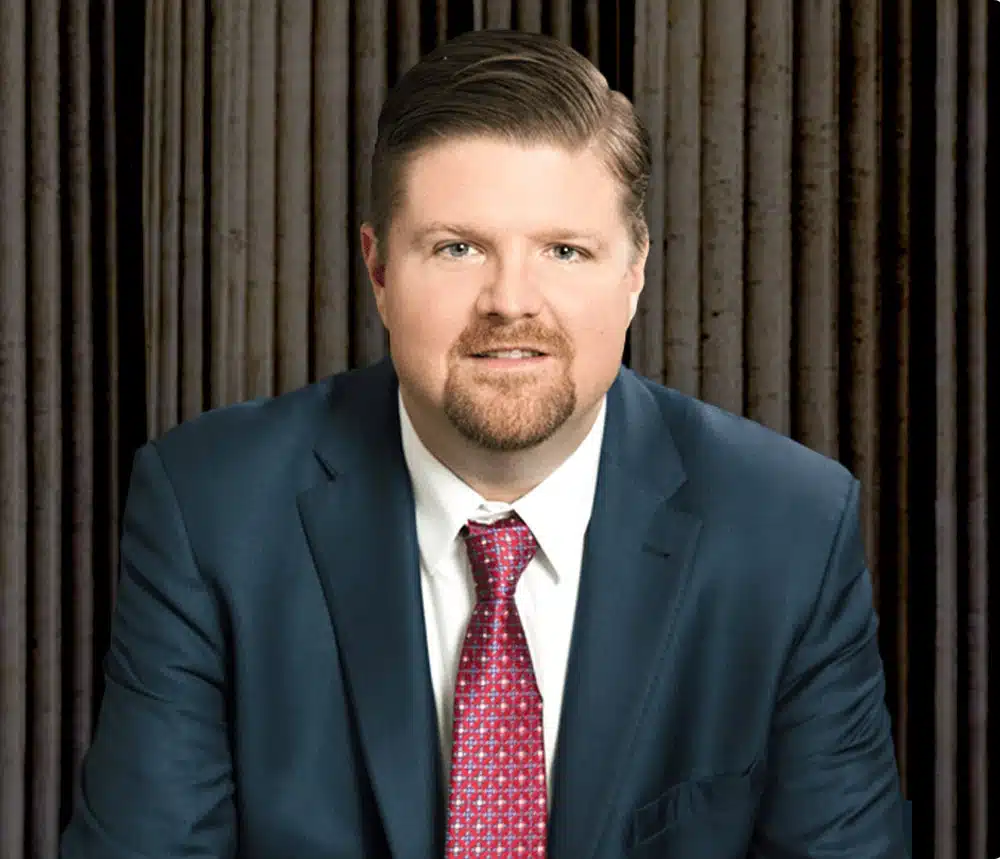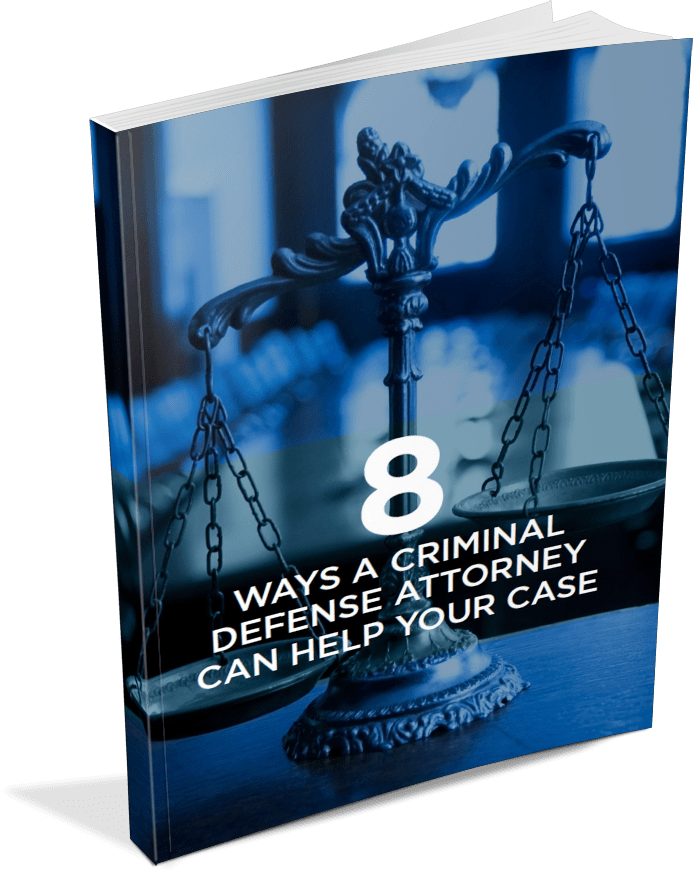Felony Charge Defense
Felony Crimes Lawyers :: The Law Office of Matthew D. Sharp
The Texas Penal Code defines two general categories of crimes: misdemeanors and felonies. Misdemeanors are relatively less-substantial crimes that are punishable by time to be served in a local jail and/or a fine. Felonies are crimes for which a person may be sentenced to imprisonment in a state prison for at least two years or, in certain cases, to death.

Have you or someone you know been charged with a felony offense?
Take just a couple minutes to fill out the form and schedule your free consultation with Matthew Sharp.

Attorney Matthew D. Sharp
Being charged or accused of a crime is a frightening experience, especially when the allegation is false.
I believe everyone deserves a second chance. My job is to defend YOU.
Results Matter.
My results-driven approach means I can bring invaluable insights from past victories to help in your case.
State of Texas v. JB
Sexual Assault
Harris County Court – Jury trial
Not Guilty
State of Texas v. JP
Prostitution
Harris County Court
Pretrial Intervention
State of Texas v. MS
Prostitution & unlawful carrying of a weapon
Harris County Court – Jury trial
Not Guilty
(ON BOTH CHARGES)
Testimonials
I believe clients should be #1. Read my testimonials to see what past clients have said.
He Helped Me Change a Negative to a Positive
I brought Matt an almost no-win case and he was able to help me change a negative to a positive. His advice is solid and staight forward. I highly recommend The Law Office of Matthew Sharp.
Amber W Houston, TX
Penalties for Felony Charges in Texas
Texas law divides felonies into one of five categories, depending on the seriousness of the offense:
- Capital Felony – Those convicted of a capital felony face one of two possible sentences: death or life imprisonment without parole. If the jury returns a guilty verdict on a capital murder charge, either of these are the only sentences which it can hand down.
- First Degree Felony – A first degree felony conviction carries a penalty of life in prison, or a term of not more than 99 years. In addition to prison, a first degree felony can also involve a fine of not more than $10,000.
- Second Degree Felony – Second degree felony convictions can involve a prison sentence of not less than 2 years but not more than 20 years in a state prison, as well as a fine not to exceed $10,000.
- Third Degree Felony – Conviction of a third degree felony can be punished by not less then 2 years in jail or in a state prison. A fine of up to $10,00 may also be imposed. Under Texas law it is possible that some crimes, which would normally be misdemeanors, can be punished as third degree felonies under certain circumstances such as a previous criminal record or multiple charges related to the same offense.
- State Jail Felony (Fourth Degree) – A state jail felony charge will results in 180 days to 2 years in a state jail. Suspect will also be fined up to $10,000.
Additional Punishments of a Felony Conviction
In addition to the punishments imposed by a court, a felony conviction will remain on your criminal record for the remainder of your life. As such, that record could result in you being denied a home mortgage, many forms of federal housing and social assistance, denial of many professional and business licensing or eligibility for most elected and appointed offices. A felony conviction is something that you would want to avoid if at all possible and the best way to protect yourself against such convictions is by hiring the competent criminal defense lawyers at The Law Office of Matthew D. Sharp.
Degrees of Felonies and the Consequences
In Texas, a felony is a crime that’s punishable by more than a year in jail. With few exceptions, a prison sentence is served in the Institutional Division/State Jail Division of the Texas Department of Criminal Justice.
Texas felonies are divided into five classes. The Texas legislature determines what distinguishes a crime from a felony. Criminal law is continually amended in Texas. New crimes are added, deleted, or changed. What is now a misdemeanor may be considered a felony charge in the future by the state.
For instance, a law “Evading Arrest in a Vehicle” was once considered a Class A misdemeanor in Texas. In 2011, the Texas legislature determined the crime was more serious. The offense was considered a third-degree felony, with prison time of two to 10 years and a maximum $10,000 fine for a first offense.
It’s important to realize that if you’re accused of a misdemeanor crime now, you’re locked into the law as it stands now. That’s known as the Texas ex post facto clause. In other words, the criminal can’t be asked to face harsher punishments even though his or her actions were considered a misdemeanor crime now. Extended sentences or new penalties won’t apply in that case under Article 1, Section 10 of the U.S. Constitution.
Various Degrees of Felonies
The state of Texas uses four categories to classify felonies. Each felony class is weighted according to seriousness and the prior offenses committed by the convict:
- Capital felonies, Texas Penal Code § 12.31, considered the most severe type, also warrant the most severe punishments. A person who commits a capital felony in Texas faces the death penalty or life in prison without parole. In a capital felony case, the prosecution informs the jury about whether the death penalty is being sought. If the prosecution isn’t seeking the death penalty, the jury is informed that it considers a life in prison sentence as mandatory.
- Those convicted of first-degree felonies, Texas Penal Code § 12.32, face punishments of life in prison and prison sentences between five years to a maximum 99-year prison term in Texas. The individual charged with a first-degree felony also faces a maximum $10,000 fine (or higher in certain drug cases). Probation or deferred adjudication may be possible in some cases.
- Those accused of second-degree felonies, Texas Penal Code § 12.33, face imprisonment sentences of two years to 20 years and a fine of up to $10,000. Parole eligibility occurs after the convict serves a minimum number of years, depending on the specific crime type.
- A third-degree felony, Texas Penal Code § 12.34, is punishable by a two-year minimum and a maximum 10-year state jail sentence plus a maximum $10,000 fine. According to the Texas Code of Criminal Procedure, the convict either used a deadly weapon or committed another crime. Probation or deferred adjudication may be possible. To learn more about specific punishments that apply to third-degree felony crimes, contact an experienced lawyer now.
- A state jail felony, Texas Penal Code § 12.35, involves theft of property valued at no less than $1,500 and no more than $20,000, or credit or debit card abuse. Parole doesn’t apply to state jail felonies.
Examples of Felony Crimes in Texas
The Texas Penal Code is rich and complex. Variations and specific exceptions are used to classify criminal behavior. If you have been charged with a felony or federal crime in Texas, contact an experienced criminal defense attorney now. This is an extremely serious matter.
An example of a capital felony is capital murder. Although capital murder and first-degree murder crimes are similar, the difference is based on case-specific circumstances. The state must prove that the defendant committed the crime, and that the killing with done “intentionally,” with premeditation, and with “reckless disregard” for life.
Examples of a first-degree felony include: 1) aggravated kidnapping; 2) aggravated sexual assault; 3) aggravated robbery; 4) attempt of capital murder; 5) burglary [of a habitation] with intent to commission or commit a felony; 6) murder; 7) solicitation of a capital murder; 8) escape from custody in which a serious bodily injury results; 9) human trafficking of individuals 13 years or less; 10) arson of a habitation; and 11) aggravated assault of a public servant or peace officer.
Examples of a second-degree felony include: 1) arson; 2) bribery; 3) aggravated assault; 4) bigamy; 5) evading arrest (including death of another person); 6) contact considered indecent with a child; 7) robbery; 8) manslaughter; 9) improper relations between teacher-educator and student; 9) intoxication manslaughter; 10) possession of between 50 pounds to 2,000 pounds of marijuana; 11) sexual assault; 12) stalking (second offense); and 13) human trafficking (any age).
Examples of a third-degree felony include: 1) deadly action with a firearm; 2) aggravated perjury; 3) stalking; 4) escape from a felony custody; 5) possession of firearm by a known felon; 6) bail jumping (felony arrest); 7) indecent exposure (child); 8) intoxication assault; 9) retaliation; 10) third offense DWI; 11) third offense (violation protective order); 12) evidence tampering; and 13) stalking.
Examples of a state jail felony include: 1) burglarizing a building; 2) coerce minor (join gang by threatening violence); 3) credit card or debit card abuse; 4) animal cruelty; 5) criminally-negligent homicide; 6) DWI (child passenger); 7) evade arrest (vehicle); 8) false report or alarm; 9) check forgery; 10) child custody interference; 11) criminal nonsupport; 12) fraudulent use/possession identifying information; 13) unauthorized vehicle use; 14) drug possession (>one gram of controlled substance); and 15) improper visual or photography recording.
How Felonies Are Handled
A capital felony case is handled in district court with an automatic appeal of the case to the Texas Court of Criminal Appeals.
A first-degree felony, second-degree felony, third-degree felony, or state jail felony is handled in district court.
Best Course of Action if Charged with a Felony Crime in Texas
If you’re charged with any class of felony crime in Texas, you need an attorney for felony charges. Hire an experienced criminal defense attorney as soon as possible to give yourself every possible legal advantage.
The Law Office of Matthew D. Sharp has defended first, second, and third-degree felony crime charges. Before Mr. Sharp went into private practice, he was the Assistant District Attorney for the Harris County District Attorney’s Office. He understands what clients face from prosecutors who want a conviction.
Keep in mind:
- People who are arrested on a felony charge are sometimes wrongly accused. A criminal defense attorney is a critically important element in clearing your name.
- Other people realize they made an awful decision. A criminal defense attorney can help you to address the problem and minimize the social, financial, and relationship impact on your life.
You Will Lose These Basic Rights if You are Convicted of a Crime
When a person is convicted of a felony crime, they will face severe consequences. In addition to incarceration and steep fines, a convicted felon loses rights that most people take for granted. Because felony crimes are considered the most serious offenses in the American judicial system, punishment by incarceration is not believed to be a sufficiently stern deterrent. By denying convicted felons certain rights, law enforcement officials hope to set an example that will prevent future crimes.
The Origin of Denied Rights
The use of harsher punishments for serious crimes has been a part of common law legal systems for hundreds of years. In fact, this practice has roots in the legal systems of England during the Middle Ages.
Denying certain rights to individuals who were found guilty of serious crimes served as a warning to others who might be tempted to break the law. The modern interpretation of felony offenses defines a “felony” as a crime punishable by more than a year of incarceration.
Types of Denied Rights
The rights that convicted felons lose are not removed arbitrarily. The removal is designed to prevent felons from taking part in some of the freedoms enjoyed by the general population. Both the states and the federal government have penalties for felony offenses. However, not all states have the same guidelines for punishing felony convictions. Some of the rights denied to convicted felons include:
- The right to vote
- The right to travel to foreign countries
- The right to receive federal assistance or reside in government-subsidized housing
- The right to bear arms
Nearly all states have laws that prevent incarcerated felons from voting while they are serving their prison terms. Many states also deny paroled felons voting rights. In some cases, a state will allow a convicted felon to regain voting rights after a period of time. However, some states remove voting rights from felons permanently.
Contrary to popular belief, it is possible for convicted felons to obtain a passport. This is because a passport is a valid form of identification and does not guarantee the right to travel. Many countries have severe restrictions in place regarding individuals with criminal histories traveling across their borders. In this way, felons are denied entry to many foreign destinations.
Losing the right to receive government assistance is a particularly harsh punishment for convicted felons. Many of them will face difficulty when trying to obtain employment after they are paroled because they must report their felony convictions on job applications. Also, convicted felons are banned from owning firearms in almost all jurisdictions. In fact, many states stipulate that convicted felons are not even allowed to be within a certain distance of a firearm.
Free E-book
8 Ways a Criminal Defense Attorney Can Help Your Case
Unsure where to go for help after getting arrested? Learn more about how hiring an experienced criminal defense attorney will help your chances at freedom.

Contact the Law Office of Matthew D. Sharp Today
The criminal defense attorneys of The Law Office of Matthew D. Sharp have successfully defended hundreds of felony arrests involving all law enforcement agencies of the Houston Metro Area. They will bring their years of experience to bear on your personal case and provide you with the most effective defense that can be found in the area. The Law Office of Matthew D. Sharp can be reached at any time at 713-868-6100.




